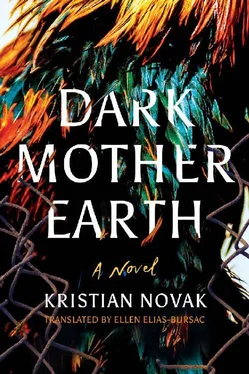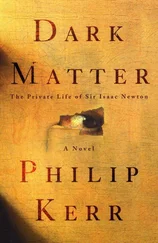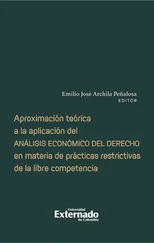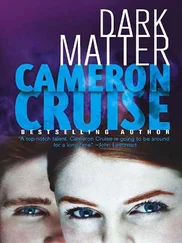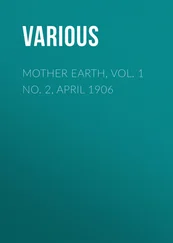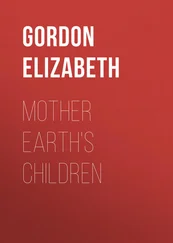“My sister told me I was a weird kid and she was frightened of me, both right after Dad died and later.”
“So there, maybe that’s it.”
“I’d like to know what happened. You mentioned hypnosis.”
“There are all kinds of things—hypnosis, regression, there are even meds for this—but I think they can only lead to a brief moment in the construction of the self. What you’re dealing with isn’t amnesia, it’s repressed-memory syndrome, and it hasn’t been well researched. The people who work on this think you can only really reach a memory when you have a trigger: a smell, or taste, or something else that ties you to it. But it’s controversial. In your case, I think you should focus on the negative feeling that’s associated with the memory. Maybe something will open up for you. Be brave, give in to it, see what happens. I don’t envy you. The key, I think, is when a person realizes he can’t escape himself and the things he’s hidden. The trick is to embrace them. If a person learns to live with his full self, carries around his suitcase packed with repressed, shameful, bad things, opens it once in a while and has a look, and then takes a long moment to process all the debris… he’ll understand himself better, if nothing else. And be happier for it. And, probably, more fair to himself. Whatever you’ve been through, now you’re here, you’ve survived, you’re standing on your own two feet, with all your baggage and your demons. You need to take the first step, that’s all.”
“All that’s swell. But… I don’t know where I’m supposed to be going.”
“That’s not a problem. You said they control you.”
“Yes.”
“So let them. Let them take you there.”
When he came home, even before taking off his shoes, he poured himself a generous glass of whiskey, downed it, then filled the glass again. He sat at the table and leafed through the drawings and messages. He tried to arrange them in some kind of chronological order guided by elementary logic: first were the drawings on their own, then drawings with names over the figures, then drawings with sentences, and finally sentences without drawings. Nothing proved to him he’d really written and drawn them. He tried to imagine the kid and the world that made that kid the way he was. It was a terrifying world full of clocks and bitten-back words, full of shame and defeat. He could clearly imagine the boy watching him from a snowy field in early morning, whispering, “Have you come for me?”
His hell might have gone on forever. He’d tried letting his demons take the lead, but this hadn’t gotten him anywhere. He could ask his sister for the details; she would tell him, unlike their mother, who would’ve twisted the whole thing beyond recognition to avoid the hardest parts. He could get into his car, right now, half-drunk, drive to Međimurje, and cruise around the village. Maybe something he found there would jump-start his memory. One of his cousins still lived there. He knew this because a few years ago, out of the blue, he’d received an invitation to a wedding, and he hadn’t even had the decency to RSVP. He’d imagined himself in a house full of people with whom he shared genetics and nothing else, drinking when the obligatory toasts were made, pretending that the city was inferior to village life, playing down his accomplishments so as not to cause envy, and to keep from coming across as pompous, he’d praise the decor and go on about how he didn’t have a family of his own yet. Maybe now he could tolerate wearisome conversation with people he had nothing in common with so he could find a little space to ask, after a time, perhaps even laughing a little, what he was like as a child and why everyone was so frightened of him.
No way.
In their reconstruction, there’d be a moment when he’d glimpse a face clearly, hear a few words echo, but it would all be strange to him. These were not the things calling out for help in his dreams.
False memories ruled the whole nasty evening until, while poking around in his box of photographs, third glass of whiskey in hand, he stumbled on a high school class picture. Seeing it sent a hot flush rushing to his cheeks, like the painful sting of an insect, and he shut his eyes. When he opened them again, the blaze on his cheeks lingered; what he’d glimpsed swirling behind his eyelids was cold and shameful, and totally his.
A kid named Franković’s father had been killed in a car accident, and the whole school was on their way to the funeral. They all stood there, solemn and hushed in little groups in the hallway, waiting to leave for the Miroševac cemetery. The boys were talking quietly about sneakers, the girls musing about how painful this must be for Franković. Korina said her old man was a creep, but she’d die if something happened to him. Everything was fine until Matija blurted out that he didn’t give a shit about Franković’s old man, who’d been a terrible driver anyway. The chatter stopped, and Matija suggested they all go for a drink instead of to the cemetery. He snickered sourly, and the others eyed him, startled and disturbed. Someone said, “Hey, what the fuck,” then another said, “You moron,” and “Dolenčec, shut the fuck up.” He sneered. He pretended to be enjoying himself: “Hey, for God’s sake, lighten up, we get to trade the chemistry and math classes for fun things like Formula One or Stanley Kubrick or, if you prefer, Franković’s old man.” No one laughed; Matija rolled his eyes and acted like he was the only one with the balls to speak his mind.
It was shameful and sad, and it had taken until this sorry moment for him to admit to himself why he’d done that. They were all feeling sorry for Franković, but when Matija’s dad died, no one felt sorry for him. It’s way tougher to lose your dad when you’re small than when you’re almost grown, thought Matija then, and we were left on the verge of poverty. Who cared how things were for me then?
This must be the key Mr. Shrink was talking about, thought Matija.
That evening more tangles unraveled, and he crept closer to his misery. The alcohol had begun heating him up, and he was starting to probe the warm, silty river bottom. He let himself sink. This was the only way to delve into it without caring. Instead of seeking a victim in the mirror, he felt himself craving someone else’s pain. He fell asleep, eager for morning, wanting to catch a glimpse of the golden boy who was condemned to die. Don’t forget Stjepan Hećimović. Please, how could I possibly forget him?
He was burning to see this man before Hećimović learned he was doomed, to soak up his every gesture, to see how carefree he acted, thinking he’d have another forty years. They might even meet, and Matija could ask him, innocence incarnate, how he was feeling. If the chance came up, he might just give the man the worst news he’d ever hear. Matija could watch him as his face changed when he learned he had only three months to live. The thought that he might witness another person’s downfall made Matija grin. He stopped waiting, passive and frightened, for the forgotten stuff in his head to spread across his sky. Once he’d broken the news to Hećimović, he’d be prepared to look at the disturbing drawings of that kid he’d buried in his memory so long ago.
He googled Stjepan Hećimović and found him listed on the website of the Faculty of Science at the University of Zagreb. Hećimović’s field was inorganic chemistry, and he’d be teaching the next day at nine thirty in the morning. This suited Matija because the next day was Friday, and Fridays at his state agency were the days when the staff ran errands, met with people at government ministries, and drank countless macchiatos, chatting sourly about their likelihood of landing another job.
Читать дальше
